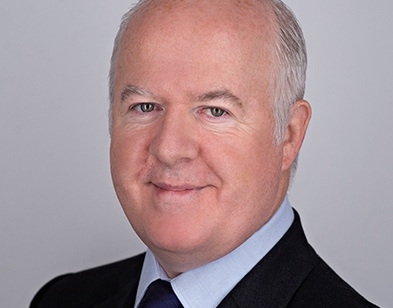I was intrigued this week by a speech from Steve Smart, FCA joint executive director of enforcement and market oversight, suggesting that the FCA was now as much a law enforcement agency as a regulator.
It reminded of the famous old cop show The Sweeney (look it up).
If they were still going now, Regan and George, the two main characters and members of the Met's 'Flying Squad', could well be employed by the FCA and running around London, bursting in on criminals and shouting: "You're nicked", their famous line.
Joking aside, life isn't quite like that but Mr Smart's comments did resonate. It got me thinking about the role of the FCA and what the difference is between regulation and policing. They have similar qualities but are they the same?
I'm not sure.
Mr Smart (great name, I wonder how many times someone at the FCA has said ‘get smart for this one.’?) was formerly employed by the National Crime Agency so knows a thing or two about policing.
I’ve known several police officers myself as friends over the years and they have sometimes asked me if I knew what the actual role of the police was. I’ve always said to catch criminals, what most people would reply. However they usually replied, well no, it's actually to ‘uphold the law.’
And that's what the FCA does, it upholds the various financial services and markets acts and several other laws. To an extent it is policing the financial markets.
As Mr Smart said in his speech to the Financial Services Investigations and Enforcement Summit, the FCA is focusing on teaming up with other regulators and law enforcement agencies to improve its policing 'effectiveness.' That makes sense but it's a co-ordinating role, not a purely policing role.
Certainly, the FCA seems to be prosecuting more court cases and pursuing fraudsters and other crooks for the proceeds of crime and compensation for clients. These are also aims for police officers investigating fraud too.
The FCA is wise to do this because financial crime has risen inexorably in recent years and these cross-body partnerships have been crucial in tackling fraudsters and scammers.
And yet, despite all this I’m not sure that policing is the same as regulation.
It is, of course, when regulated firms and advisers turn to crime, as some bad apples do, but while the headlines often highlight the criminal, inept and greedy advisers who cheat their clients, it should not be forgotten that the vast majority of advisers and Financial Planners are decent, hard-working people who strive to do no more than look after their clients to the best of their abilities. These good people do not see the FCA as conducting a police investigation when they are contacted by the regulator.
The FCA will, however, need joined-up thinking as it deals with a rising tide of financial crime and an evolving financial crime situation. Financial crime is now the most numerous crime in the UK and Mr Smart’s workload will undoubtedly grow. It will need to say 'you're nicked' a bit more often in future.
But while financial criminals should be chased to the ends of the earth it should always be remembered that bona fide, client-focused, decent planners and advisers make their clients’ lives immeasurably better and have as much in common with financial criminals as chalk does with cheese.
• Our latest issue of Financial Planning Today magazine is now available. Here’s link to view the issue: https://bit.ly/2ZdVXWz. You can drop me a line at
Kevin O’Donnell is editor of Financial Planning Today and a journalist with 40 years of experience in finance, business and mainstream news. This topical comment on the Financial Planning news appears most weeks, usually on Fridays but occasionally other days. Email:

